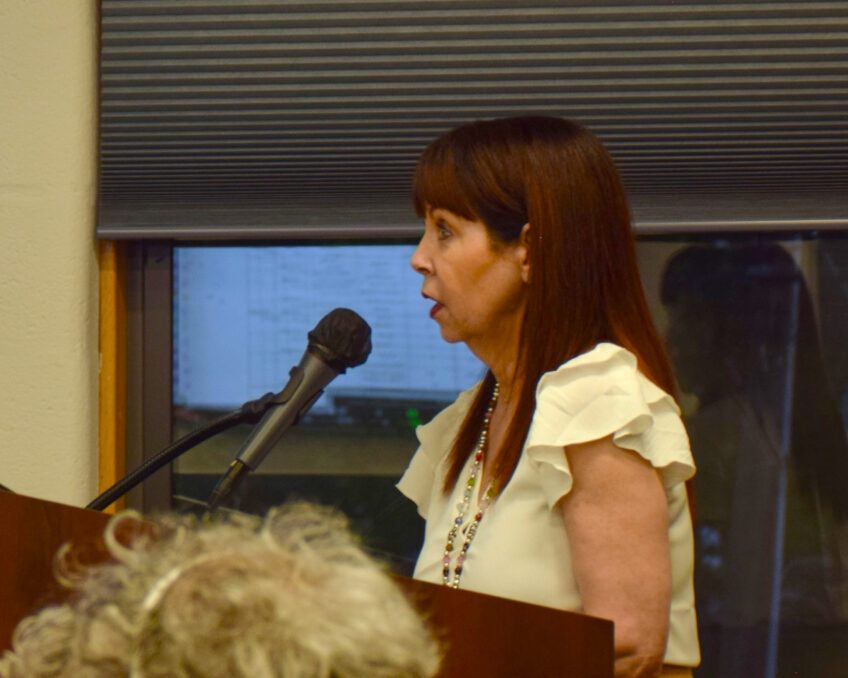On August 8 and September 27, 2022, Greenbelt City Council approved the allocation of $5.8 million in American Rescue Plan Act (ARPA) funds to be used toward the development of 14 grant and assistance programs to help Greenbelt families, small businesses and nonprofit organizations still recovering from the negative impacts of the Covid-19 pandemic. On Tuesday, April 22, Interim Assistant City Manager Debi Sandlin provided an update on the use of funds to date and answered questions from council.
The grant and assistance programs created with the $5.8 million in ARPA funds include: Childcare Voucher Assistance, Business Capital Infrastructure Grant, Business Improvement Recovery Fund Round III, Education Scholarship Grant, Greenbelt Homes, Inc. (GHI) First-Time Homebuyers Mortgage Assistance Grant, Greenbelt First-Time Homebuyers Mortgage Assistance Grant, Healthcare Voucher Program, Nonprofit Grants, Micro Grants, Tree Canopy Grants, Workforce Development Scholarship program, HOA/Rental & Utility Assistance, Mortgage/HOA/Co-op Fee Assistance and Nonprofit Food Assistance.
Concerns
Primary among the concerns at the recent meeting was the lower-than-hoped-for number of applicants for the grants. Several had extended deadlines, reported Sandlin, including the Education Scholarship Grant, which received 22 applications in the first round and an additional seven in the second round, which has a new deadline in June.
The Greenbelt First-Time Homebuyers Mortgage Assistance Grant and the GHI First-Time Homebuyers Mortgage Assistance Grant, both of which are for amounts up to $15,000, have each received only one application. The applications for those close at the end of this calendar year. The Workforce Development Scholarship Program which is for up to $10,000 and has a rolling deadline has received only one application. Tree Canopy Grants for $750 to $7,000 have a deadline of June 19 and have received only two applications. Micro Grants with an extended deadline of June 16 and allocation of $500 to $1,000 have received only two applications. Greenbelt Business Capital Infrastructure Fund for awards up to $50,000 and a deadline of July 3 have received only three.
Mayor Emmett Jordan asked why the city doesn’t make all the deadlines rolling ones until funds are depleted. Councilmember Kristen Weaver believed it was good to be able to review applications all at once if there were more than could be funded. Yet, Jordan feared a long lag time between application and review or a passed deadline might be a deterrent.
Councilmember Judith Davis was concerned that there was little interest in some of the programs, even though “we hear that there’s a great need out there.” If the money is not expended it will have to be spent quickly at the end of the period before Congress claims it back, Davis noted. All funds must be allocated by December 2024 or they will be lost.
Jordan said that though the programs could be impactful some things were holding people back from applying, particularly with microgrants. He suggested reallocations of money to programs where there is demand at the start of the fall. Weaver suggested creating a packet to hand to people interested in applying. She also recommended getting the information to other outlets that people may be paying attention to if they don’t follow the City of Greenbelt website.
Sandlin said for the programs with deadlines they had to consider that volunteers weren’t always available so that they could have rolling deadlines and the volunteers reviewing the applications needed to know the time expectation. She noted that the first-time homebuyer grants might be underutilized because there wasn’t enough inventory in the City of Greenbelt within the income parameters established and that residents are under leases that they can’t afford to break before they expire.
SAM.gov
Interim City Manager Tim George said the requirement for a SAM.gov number has deterred people and businesses, even though it only takes a few minutes to sign up. George said businesses don’t necessarily understand the SAM.gov process and there is some distrust of government. However, the SAM.gov numbers are a federal requirement that Greenbelt can’t waive. They are trying to work with businesses to help them through that process.
Davis said she thought a lot of people believe the ARPA money is only to go with service projects and helping people with rent and so forth. “[S]ome of this ARPA money [is] going to replace aging infrastructure or other important needs that the city and its residents need and if we didn’t use ARPA money for that … would cause an increase in taxes … This was a one-time shot. … I doubt very seriously if we will ever get that big an amount of money again,” said Davis.
Trees
Weaver pointed out that the trees grant in particular asks for an organization name and tax-exempt number and the form could be changed to “organization or individual” and “tax-exempt number if applicable.” Individuals can apply and the instructions reflect that but the form is off-putting, noted Weaver.
Sandlin said the city has partnered with the Greenbelt Community Development Corporation (GCDC) to work with individuals. Applications go to the city where they will be voted on. The city will then provide the GCDC with the list of names and how much they’ve been approved for and the GCDC will manage the process, provide reports and assign a SAM.gov number.
George said people are deadline oriented and the deadlines should not be extended, but he believed there should be second rounds so that those who have applied will receive decisions faster. Jordan believed the education grant applications were a direct response to outreach to schools with the extended deadline and would like to see more outreach.
Businesses and individual residents can access information and applications for the open ARPA grants at engagegreenbelt.org/grants.

